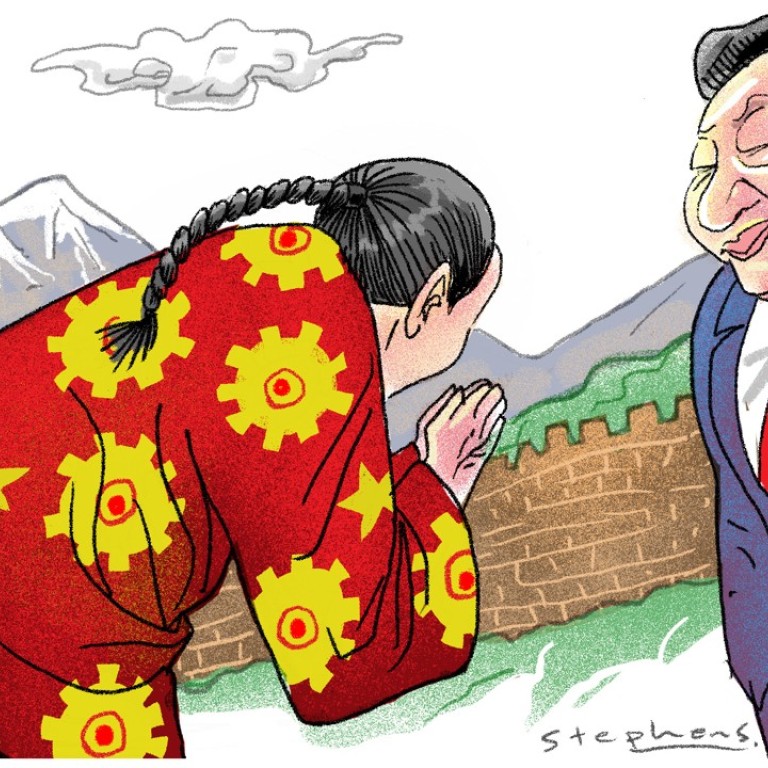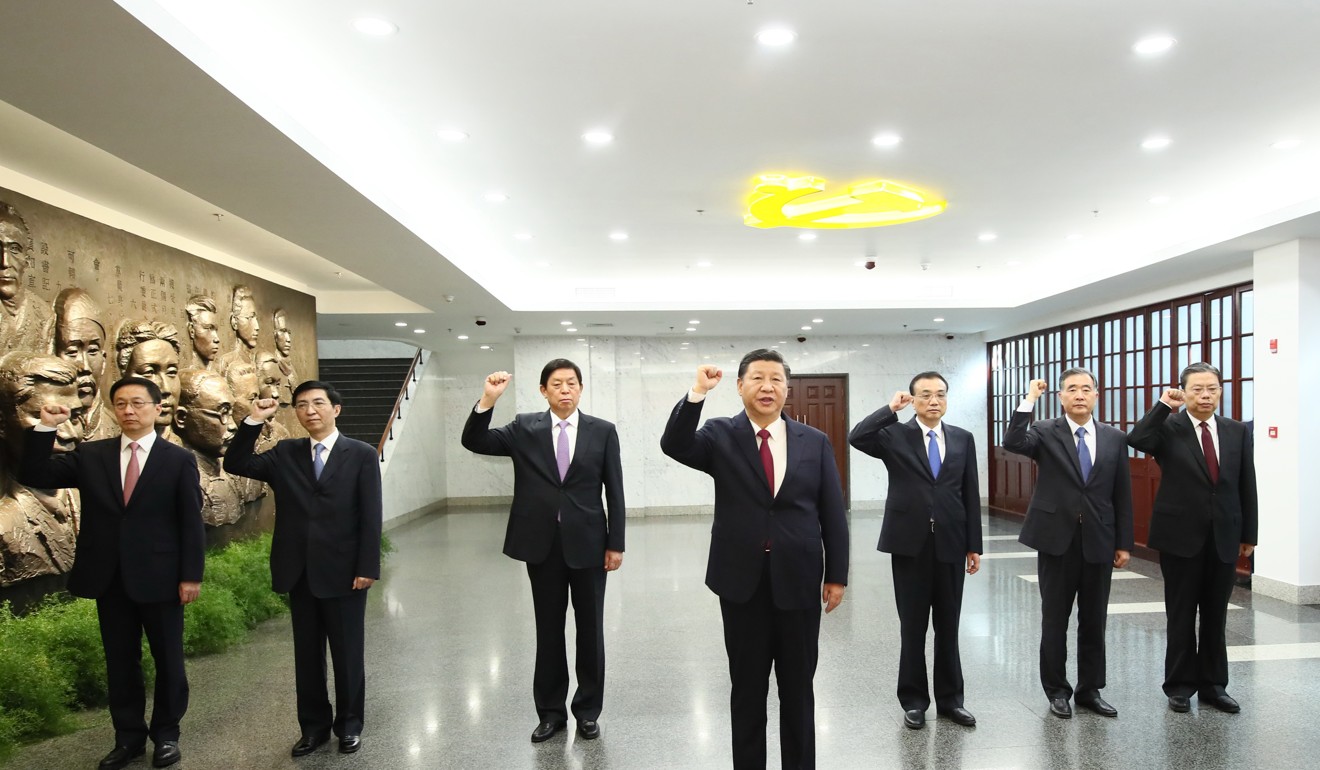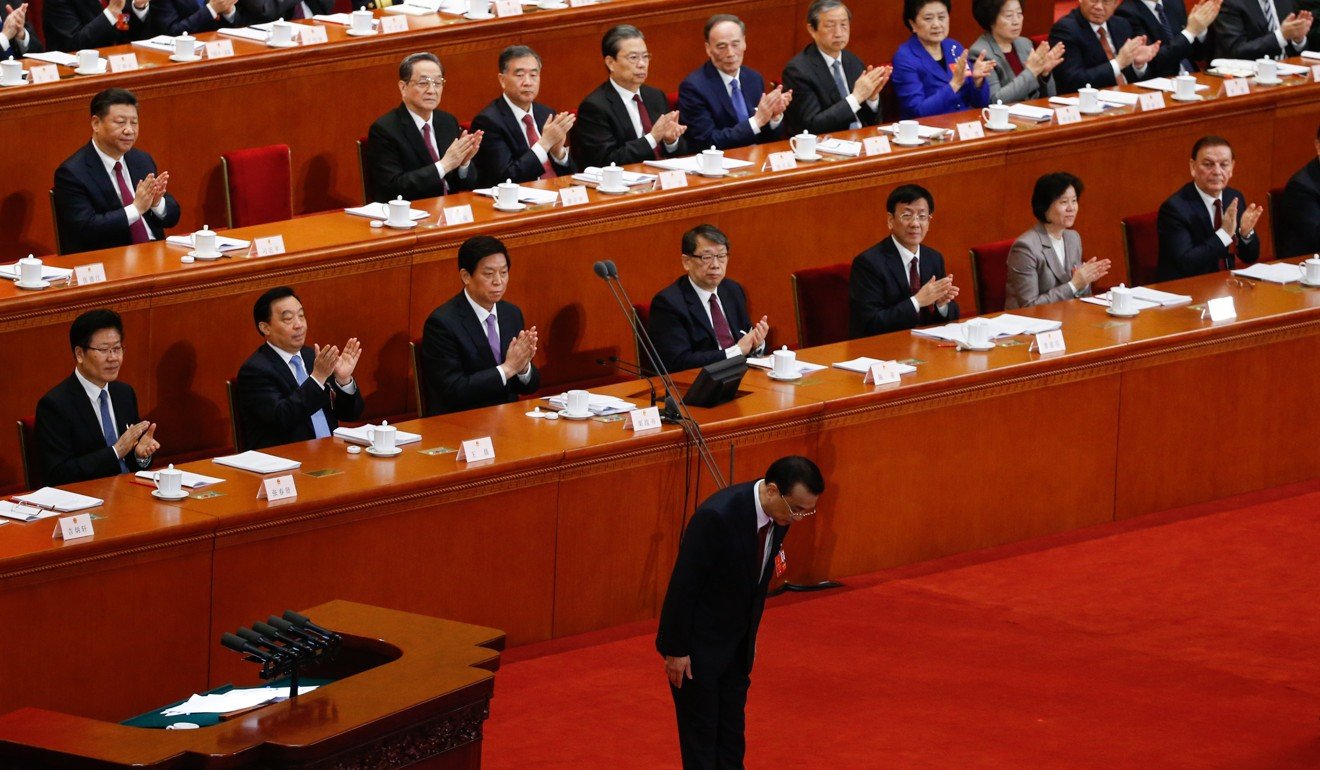
Xi Jinping’s power has a purpose – one person to see China through its development plans
Robert Lawrence Kuhn says international media have fixated on the end of term limits and missed the point; the pivotal moments in Xi Jinping’s rise to unparallelled power happened several months ago, and there’s a reason the party supports him
It is a challenge to explain why abolishing term limits is good for China, so that’s what I will do.
Under Xi Jinping, a return in China to the dangers of an all-powerful leader
First term limits ... now Xi Jinping to shake up the state to tighten Communist Party’s grip on government
All this reconfirms that, in a system where the party controls the state – especially where the party is Marxist and ideology is its basis for being – Xi, as core of the party, with his name inscribed in the constitutions of party and state as the contemporary arbiter of Marxism, will be the uncontested, overarching leader of China for the rest of his sentient life.
For intended consequences, the official line is that the purpose is national cohesion brought about when the three top leadership positions – general secretary of the party, chairman of the Central Military Commission and president of the republic – are aligned temporally and held by a single person.

Xi Jinping must stay on as China’s president during this critical time, as Roosevelt did for the US
This makes sense, but as a primary, proximal motivation, it is not entirely persuasive. The current structure has existed for decades without outcry or angst (not to mention that the three positions could be unified by installing term limits on the other two).
Why now? The rationale behind Xi Jinping’s power consolidation
Some argue that doing away with term limits shows the superiority of the Chinese system as it allows flexibility in matching leadership to requirements (though what national leader, when extending his reach, has not claimed “current requirements” as justification?).
Xi Jinping’s strong leadership style has its risks, but also advantages
The party-run Global Times stated that ending term limits does not mean China has reverted to president-for-life tenure. (But who can deny that however long Xi holds the top positions seems largely up to him?)
China to be more open to foreign investment, speed up Beijing-led trade bloc and strengthen its military: Li Keqiang
As for Xi maintaining the presidency perpetually, it doesn’t actually matter much – this is the deep insight of how China’s party-state system works. Xi as core of the party and “Xi Jinping Thought...” as the party’s (and now the state’s) guiding principle means that Xi can transfer titular party leadership and/or the presidency to others and still maintain his overarching power. It may well be that, after serving two or even three more terms, rather than trying to find and install another leader like himself, he will move to bring about true democracy within the party.

Key takeaways from Chinese Premier Li Keqiang’s opening speech for the National People’s Congress 2018
Here’s the best case. Xi will not be leader-for-life, but leader long enough to bring about China’s national rejuvenation and establish a Chinese kind of democratic norms. Could Xi continue until around 2035, when China plans to have “basically” achieved full modernisation, heading towards, by mid-century, 2050, a “great modern socialist country”?
Many expect this experiment to end badly for China. It is indeed an experiment but its end is not set. It may be a race between achieving Xi’s grand vision and some untoward perturbation that could cause fracture.
All factors considered, I am not saying abolishing term limits is absolutely good for China. I am saying it may be good – because of China’s special conditions and Xi’s special capabilities – but if it is good, it’s just for this once, and it’s just for so long. That’s the best case. I’m rooting for Xi.
Robert Lawrence Kuhn is a public intellectual, international corporate strategist and investment banker, and China expert/commentator. He is the author of How China’s Leaders Think and he is co-creator (with Adam Zhu) and host of CGTN’s Closer to China with R.L. Kuhn and The Watcher commentaries

